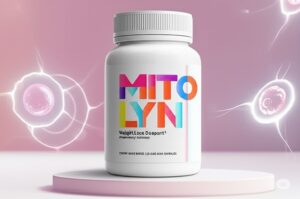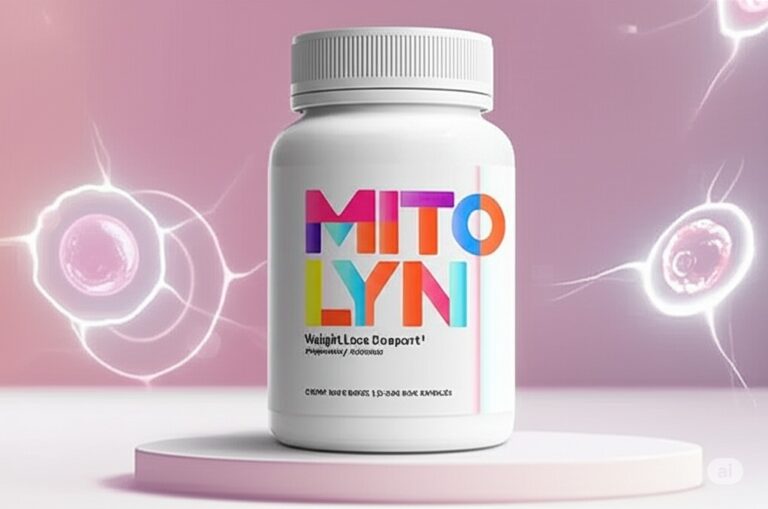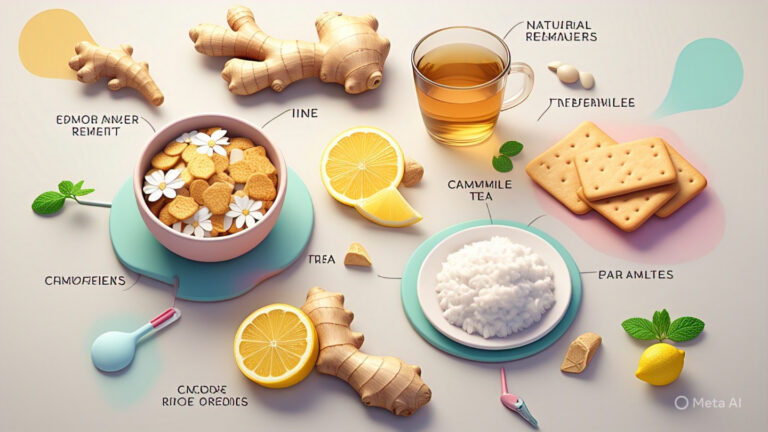Home Remedies for Herpes Virus: Safe and Effective Natural Solutions (2025 Guide)
Estimated reading time: 10 minutes
Key Takeaways
- Home remedies can soothe herpes symptoms but do not cure the virus.
- Options like aloe vera and cold compresses offer accessible relief for pain and itching.
- Lifestyle changes, such as stress reduction and hygiene, play a critical role in managing outbreaks.
- Always consult a healthcare provider before trying remedies, especially if on medication.
- Scientific backing for natural solutions varies, so use them with informed caution.
Table of Contents
- Introduction to Managing Herpes with Home Remedies
- Understanding the Herpes Virus and Its Impact
- Why Choose Home Remedies for Herpes Management?
- Top 8 Evidence-Based Home Remedies for Herpes Symptoms
- Lifestyle Strategies to Prevent and Manage Outbreaks
- Safety Guidelines for Using Home Remedies
- Scientific Insights and Credibility of Home Remedies
- Frequently Asked Questions (FAQs) About Home Remedies for Herpes
- Additional Resources for Herpes Management
Introduction to Managing Herpes with Home Remedies
Living with the herpes virus can feel overwhelming, but you’re not alone in this journey. At WikiHomeRemedies, we’re here to guide you through natural, at-home solutions to ease symptoms of HSV-1 and HSV-2 with care and understanding. Our goal is to provide a supportive resource grounded in science, drawing from trusted sources like the CDC and WHO, while addressing the emotional weight of managing outbreaks.
Herpes affects millions worldwide, with prevalence stats from the WHO showing over 3.7 billion people under 50 living with HSV-1. We know outbreaks bring discomfort and stress, so this guide focuses on discreet, practical remedies for relief. Remember, while these natural approaches support symptom management, they don’t cure the virus. Always consult a healthcare provider for tailored advice, especially for severe cases. Let’s start by understanding the virus itself and then explore how nature’s healing can help. For more on managing viral symptoms, check out our related guide on natural solutions for cold sores.
Understanding the Herpes Virus and Its Impact
The herpes virus comes in two main forms: HSV-1, often linked to oral cold sores, and HSV-2, typically associated with genital outbreaks. Both spread through direct contact, whether via kissing, sexual activity, or shared items during active sores. Once contracted, the virus stays in the body for life, hiding in nerve cells and resurfacing as outbreaks when triggered.
Symptoms are often easy to spot. You might notice painful blisters or sores around the mouth or genitals, itching or burning sensations before sores appear, and sometimes flu-like signs such as fever or swollen glands during initial outbreaks. Triggers vary from person to person but commonly include:
- High stress levels from work or personal life.
- Lack of sleep or ongoing fatigue.
- Hormonal shifts, like those during menstruation.
- A weakened immune system from illness.
According to the NIH, over 50% of adults in the U.S. carry HSV-1, while HSV-2 affects about 12%. Lifestyle plays a huge role in managing how often outbreaks occur. Knowing what sets off your symptoms is the first step to control. This understanding helps us see why natural remedies can offer support, which we’ll explore next. For additional insights on managing related symptoms, see: home remedies for fever.
Why Choose Home Remedies for Herpes Management?
Turning to home remedies for herpes can feel like a discreet and comforting choice. Many find these natural options bring relief without the need to step out or spend much. They fit quietly into daily life, offering a sense of control over symptoms right from your own space.
Here are a few reasons people lean toward these approaches:
- They provide a private way to manage outbreaks at home.
- Most are budget-friendly compared to some medical alternatives.
- They often use everyday items or accessible ingredients.
Yet, it’s vital to recognize the boundaries. Natural solutions don’t replace antiviral medications prescribed by doctors. They support, soothe, and sometimes lessen discomfort, but they won’t eliminate the virus. Safety comes first, so always check with a healthcare provider, especially if you’re on other treatments or face frequent outbreaks. Hearing from others and even dermatologists, many agree these methods can help when used wisely. With that in mind, let’s dive into specific remedies that show promise for easing herpes symptoms. For broader insights on natural symptom management, explore: home remedies for herpes management.
Top 8 Evidence-Based Home Remedies for Herpes Symptoms
Cold Compress for Pain and Swelling Relief
When an outbreak hits, a cold compress can bring fast comfort. It works by calming inflammation and numbing the sharp sting of sores. This simple method is something anyone can try with items already at home.
Here’s how to do it safely:
- Wrap a few ice cubes in a clean, thin cloth.
- Gently press it on the affected spot for 10-15 minutes.
- Take breaks to avoid overcooling the skin.
Be cautious not to place ice directly on your skin, as it risks burns or irritation. Medical advice from sources like the Mayo Clinic often highlights cold therapy for reducing swelling in various conditions. This easy step can be your go-to for immediate relief before trying other remedies we’ll discuss next, like soothing topical applications.
Aloe Vera Gel for Soothing and Healing Sores
Aloe vera stands out as a gentle healer for irritated skin during outbreaks. Known for its cooling and moisturizing effects, it may ease the burn of sores with some backing from small studies found on PubMed. It’s a natural choice many turn to for skin troubles.
To apply it:
- Use pure aloe vera gel, ideally straight from the plant or a trusted product.
- Dab it gently on sores 2-3 times a day.
- Let it absorb without rinsing off.
Test a small patch of skin first to rule out any sensitivity. If you’re looking for a reliable option, consider a pure aloe vera gel from a reputable brand available at health stores or online. This remedy ties into other natural antiviral ideas, such as tea tree oil, which we’ll explore next for additional support. For more on skin-soothing remedies, check out: home remedies for burns.
Lysine Supplements for Potential Outbreak Reduction
Lysine, an amino acid, has drawn attention for possibly curbing herpes outbreaks. Some research from the NIH suggests it might slow the virus’s ability to replicate, though results aren’t conclusive. Still, many users consider it a preventive tool worth exploring.
Typical guidance involves a daily dose, often between 1,000 to 3,000 mg, but only under a doctor’s watch. Side effects like digestive discomfort can occur, so start slow and seek advice. If you’re curious to try, look into a well-reviewed lysine supplement from a trusted brand online or at pharmacies. This remedy connects to broader dietary changes, which we’ll cover soon, as what you eat can influence outbreak patterns.
Tea Tree Oil for Antiviral Support
Tea tree oil carries a reputation for fighting germs and viruses, with anecdotal support and small studies hinting at benefits for herpes sores. Its potent nature makes it a popular pick for topical relief. But caution is key with this strong essential oil.
Here’s the safe way to use it:
- Mix a few drops with a carrier like coconut oil (1:10 ratio).
- Dab it on sores using a cotton swab once or twice daily.
- Avoid overuse to prevent irritation.
Never apply it undiluted or ingest it, as it can harm skin or internals. Opt for a high-quality tea tree oil from a known brand with clear usage tips. This ties into other topical aids like honey, which also offer natural healing for sores, as we’ll see next.
Epsom Salt Baths for Genital Herpes Comfort
For those managing genital herpes, an Epsom salt bath can soothe itching and stinging. The warm water mixed with salt eases discomfort in a relaxing way. It’s a straightforward method many find helpful during outbreaks.
Try this process:
- Add 1-2 cups of Epsom salt to a warm bath.
- Soak for 15-20 minutes, ensuring the area is covered.
- Pat dry thoroughly afterward to avoid moisture buildup.
Keeping the skin dry post-bath prevents added irritation. General advice from platforms like WebMD supports warm baths for skin relief in various conditions. This practice links to personal care habits, which we’ll dive into later, as cleanliness plays a big role in managing symptoms.
Lemon Balm for Cold Sore Relief
Lemon balm, a herb with a calming scent, shows promise for easing HSV-1 cold sores. Small trials on PubMed point to its antiviral components, like rosmarinic acid, helping reduce sore duration. It’s a specific remedy for oral outbreaks worth considering.
You can use it like this:
- Apply lemon balm cream directly to sores 2-3 times daily.
- Or steep the herb as tea, cool it, and use as a compress.
- Watch for any skin reactions before full use.
A quality lemon balm cream or tea from a herbal brand can simplify this step. This remedy connects to other HSV-1 options, such as honey, focusing on natural ways to heal mouth sores, which we’ll discuss next.
Honey for Natural Wound Healing
Honey isn’t just a sweetener; it’s a traditional healer for skin wounds. Its antibacterial traits may support sore recovery during herpes outbreaks, with some historical and limited study backing. It’s a mild option straight from the pantry.
Here’s how to apply it:
- Use raw, unprocessed honey for best results.
- Spread a thin layer over sores and cover lightly if needed.
- Reapply 2-3 times a day as it washes off.
Stick to pure honey to avoid additives that might irritate. Credible sources often note honey’s role in wound care across cultures. This remedy leads nicely into dietary tips, as what you consume, including honey, can tie into overall outbreak prevention.
Dietary Adjustments to Boost Immunity
What you eat matters when managing herpes. Certain foods rich in lysine, like fish, yogurt, and eggs, might help balance the virus’s activity, while immune-boosting options like citrus fruits and leafy greens strengthen your defenses. Small dietary shifts can support your body’s fight.
Consider these ideas:
- Add lysine-heavy foods: chicken, dairy, or legumes.
- Cut back on arginine-rich items: nuts, seeds, or chocolate.
- Focus on a varied diet with plenty of vitamins.
Research from the NIH highlights the lysine-arginine balance as a potential factor in outbreak control. These changes aren’t a cure but aid overall wellness. They pair well with broader lifestyle habits, like stress management, which we’ll cover next to build a full approach.
Lifestyle Strategies to Prevent and Manage Outbreaks
Stress Reduction Techniques
Stress often sparks herpes outbreaks by taxing your immune system. Finding ways to unwind can lower this risk and improve your daily calm. It’s a vital piece of managing the virus long-term.
Try incorporating these into your routine:
- Practice meditation for 10 minutes daily to clear your mind.
- Explore yoga poses that relax your body and focus breathing.
- Use deep breathing exercises during tense moments for quick relief.
Studies from the Mayo Clinic connect stress to weakened immunity, making these habits impactful. Reducing tension ties directly to better sleep and overall health, which we’ll discuss next as part of a wider strategy to keep outbreaks at bay.
Hygiene and Personal Care Habits
Keeping clean during an outbreak prevents worsening or spreading the virus. Simple daily habits can make a big difference in comfort and control. Focus on care that protects both you and others.
Follow these tips:
- Wash affected areas gently with mild soap and water.
- Avoid sharing towels, razors, or lip products during outbreaks.
- Keep hands clean before and after touching sores.
The CDC emphasizes hygiene to curb herpes transmission. These steps reduce irritation, linking to choices like clothing, which we’ll explore next, as what you wear can also affect outbreak discomfort.
Sleep and Immune Health
Rest isn’t just refreshing; it rebuilds your body’s defenses against outbreaks. Poor sleep can weaken immunity, making flare-ups more likely or severe. Prioritizing rest is a hidden key to management.
Build better sleep with:
- A consistent bedtime routine to signal rest.
- Limiting screen time an hour before bed.
- Creating a quiet, dark space for slumber.
The NIH notes adequate sleep boosts immune responses across health conditions. This connects back to stress relief, as a calm mind often leads to better rest, forming a cycle of wellness to support your journey.
Clothing Choices for Comfort (Genital Herpes)
If genital herpes is your concern, what you wear impacts comfort. Tight or synthetic fabrics can chafe sores and worsen irritation. Small tweaks in clothing can ease daily strain.
Opt for these:
- Loose-fitting clothes to reduce friction on sores.
- Cotton underwear for breathability over nylon or polyester.
- Skip tight jeans or leggings during active outbreaks.
Dermatological guidance often points to breathable materials for skin health. This ties to hygiene practices, as staying dry and clean alongside proper attire creates a solid self-care foundation during outbreaks.
Safety Guidelines for Using Home Remedies
Trying natural remedies for herpes requires care to avoid setbacks. Your safety is our priority at WikiHomeRemedies, so let’s walk through how to approach these options wisely. A little caution goes a long way.
Always test new treatments on a small skin area first to spot reactions. Steer clear of risky ideas floating online, like using bleach or unverified concoctions, which can harm rather than help. If you’re on antiviral drugs, discuss remedies with your doctor to prevent interactions. Watch for warning signs that need medical attention, such as:
- Outbreaks happening more than six times a year.
- Severe pain or sores that won’t heal.
- Signs of infection like fever or pus.
Platforms like WebMD warn against misuse of untested home treatments. Keeping safe while exploring natural aids ensures they support, not hinder, your health. This focus on evidence and caution leads us to what science says about these remedies.
Scientific Insights and Credibility of Home Remedies
When it comes to natural remedies for herpes, science offers a mixed but hopeful picture. Research, while often limited, points to potential in options like aloe vera for calming skin and lysine for possibly reducing outbreak frequency, as seen in studies on PubMed. Lemon balm also shows antiviral effects in small trials, trimming cold sore duration.
Yet, not all claims hold up under scrutiny. Traditional uses of honey or tea tree oil lean more on historical practice than robust data. Dermatologists, as noted in health journals, often view these as helpful additions rather than standalone fixes. Key findings include:
- Lysine may lower outbreak rates, per NIH preliminary research.
- Aloe vera aids skin recovery in minor studies.
- Larger, controlled trials are still needed for conclusive proof.
We aim to balance hope with honesty at WikiHomeRemedies. This clarity on evidence versus anecdote helps address the doubts many harbor, which we’ll tackle in common questions next.
Frequently Asked Questions (FAQs) About Home Remedies for Herpes
Can home remedies cure herpes?
No, herpes remains a lifelong virus with no known cure. Natural remedies can ease symptoms like pain or itching during outbreaks, but they don’t remove the virus. Always pair them with medical guidance for best results.
Are natural remedies safe for everyone?
Not always, as individual health conditions vary. If you’re pregnant, on medications, or have allergies, some remedies might pose risks. Consult a healthcare provider to ensure safety before starting any new approach.
How long do outbreaks last with remedies?
Duration differs per person, often lasting 7-14 days even with support. Remedies might lessen discomfort but don’t always shorten the cycle. Track your patterns and seek help for unusually long outbreaks.
Can I combine multiple remedies?
Combining can work but risks irritation if overdone. Start with one, like aloe vera, before adding another, like tea tree oil. Prioritize simplicity and check with a doctor to avoid negative reactions.
Additional Resources for Herpes Management
For deeper insight into managing herpes, explore these trusted sources:
- CDC’s herpes information page for transmission and prevention tips.
- WHO’s global health data on HSV prevalence and impact.
- Mayo Clinic’s guide on symptoms and treatment options.
Within WikiHomeRemedies, check related content on boosting immunity, reducing stress naturally, or caring for sensitive skin. We’re committed to supporting your wellness journey with reliable paths to explore. Reach out to these resources for comprehensive help alongside the remedies shared here. For further reading on managing skin-related symptoms, see our guide: home remedies for skin itching.










